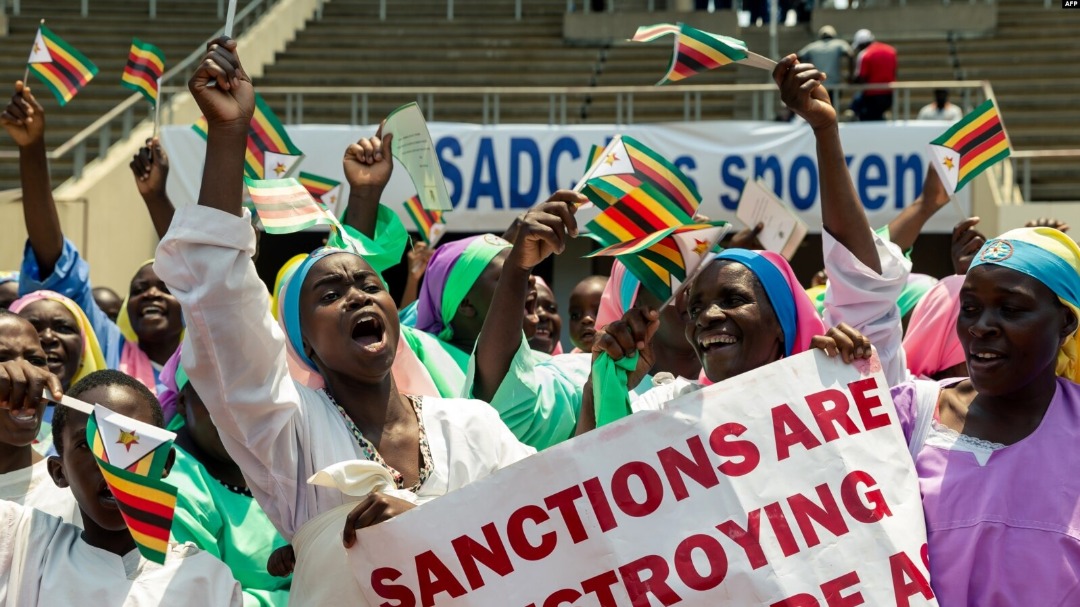Natalie Sindile Nyathi,
Chantel Takudzwa Zambukira
Sightly over a week after the Anti-Sanctions hype cut across the country, the government of Zimbabwe has launched the second phase of the Financial Inclusive Strategy.
The strategy was launched by the Minister of Finance and Economic Development, Hon. Mthuli Ncube in Harare yesterday.
Financial Inclusion is a method of offering financial services to individuals. It aims to include everybody in society by giving them basic financial services regardless of their income or savings. Financial Inclusion focuses on providing financial solutions to the economically underprivileged.
Min. Mthuli, said the Zimbabwe authorities were working on attaining affordable and accessible financial services for all.
A week earlier the same government was blaming sanctions imposed on the country to lack of sustainable development.
Anti-Sanctions Marches as reported by the government mouthpiece, The Herald newspaper depicted a successful event all over the country.
Province by province, Harare based Zimpapers publication The Herald reported that sanctions were contributing to the retarded development of individuals and the economy.
A Lovemore Chitima is quoted by the Herald reporter as saying,
“Sanctions are an albatross on the necks of all Zimbabweans and should be unconditionally removed”
“We want these sanctions removed as they are not targeted… They are causing the suffering if all people from all walks of life in Zimbabwe.” He added.
A week later Prof. Mthuli Ncube says,
“Formalization is improving from the bottom to the top. We have made progress and it is good that we are making moves in the right direction. Financial institutions and all concerned stakeholders must take joint ownership of the National financial inclusion strategy.”
President Mnangagwa in his speech to commemorate 25th of October, designated by the 39th SADC Summit that was held in Tanzania as the Anti-Sanctions day said,
“Sanctions have hindered us from accessing support and fresh capital from International financial Institutions, (IFIs)”, said President Mnangagwa in his speech.
He added,
“We must utilize our creativity and endowments to insulate our economy from Sanctions.”
Since the crash of the Zimbabwe dollar over a decade ago, residents lost life time savings and pensions, as a result no one has any slight. confidence in the country’s banking sector.
Many people, especially government employees and pensioners are the ones who have no choice but to use the local banks to access their meager salaries and inflation ravaged pensions, otherwise no sane individual uses the banks for financial services.
Yet, the esteemed economic guru, Prof. Ncube says,
“… Zimbabwe was working on achieving affordable and accessible financial services for all.”
The initial Inclusive Financial strategy was to increase the population of adults with access to financial services from the current 69% to 90% by 2020.
The current National Financial Inclusion Strategy document states that the Zimbabwean economy is largely dominated by micro, small and medium- scale enterprises which are contributing up to US$8,6 billion which is 60% to gross domestic product.
Statistics in the financial inclusion strategy document for the second phase running from 2022-2026 depict that only 14% of the economy is formalized.
With the economy largely in the hands of the informal sector, mostly those who have lost confidence in the country’s Financial and Banking sector, evidence proves that most income derived from this sector does not see the doors of banks.
Despite the fact the the informal sector constitute 60% of the GDP, the finances attained from sector contributes nothing to the fiscus.
With a mere 14% formalized economy, the government of ZANU-PF thus points to sanctions as the precursor of the lack of development in the country.
It is therefore purported that the economic embargoes, imposed on Zimbabwe since 2001 are constricting the nation’s economic growth by making it impossible for the country to secure credit and foreign direct investments.
Many Zimbabweans do not even understand what these sanctions are all about, as school children are unplugged from class and used in these marches as evidenced by the Herald Picture which stated that,
‘Pupils from St. Mary’s High school in Beitbridge lead the anti-sanctions March in the border town…’
There was another video clip of young men who dismally failed to explain how the sanctions were affecting their livelihoods.
Elderly women in Masvingo were left stranded and hungry after being ferried for kilometers to attend anti-sanctions March afterwards. They cried if hunger and thirst.
“What Sanctions? The embassy of the United Kingdom in Harare asked.
The embassy still maintains that there are targeted sanctions on several human rights abusers and the state arms company.
Owen Ncube, Godwin Matanga, Isaac Moyo, Anselem Sanyatwe, Kudakwashe Tagwirei are some of the five individuals under targeted sanctions not Zimbabwe or Zimbabweans.
“Trade between Zimbabwe and UK last year was US$175 million and we are working hard to increase this”, continued the British Embassy.
The UK also provided considerable development assistance to education and health care in Zimbabwe of about US$114 this year. This assistance gave credence to the success of Zimbabwe’s own National Development Strategy.
With such help coming from the country’s former coloniser, the country’s economy is 86% of formal.
Factors leading to the retarded economic growth point to the ravaging inflammation, lack of rule of law, lack of confidence in the financial and banking sector and political instability.
How then does Min. Prof. Mthuli Ncube claim that target to financial inclusion has been achieved when many Zimbabweans fail to access finances from the banks?
In the meantime due to ever escalating inflation, the nation’s economy has receded into the informal sector.


